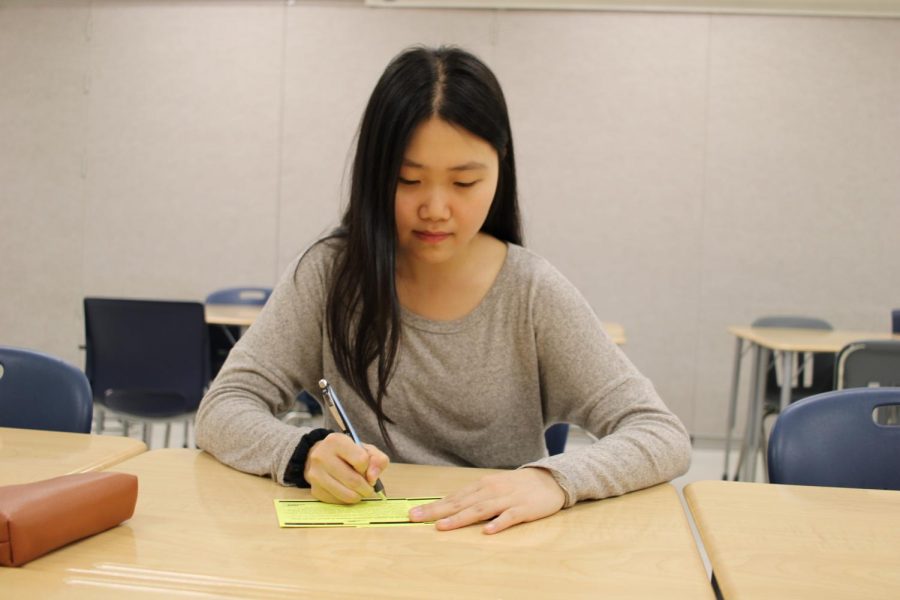Seniors speak out
Sid Ram, Michelle Pham, and Jamie Lee
Writing a letter to her legislator, senior Jamie Lee engages in political activisim through her government class.
February 19, 2020
This is it. This is what they have all been waiting for. Eighteen long years of waiting to make a choice on something that really matters to them. At eighteen years old, they can cast a ballot, change their futures, and do exactly what their eight grade civics teacher told them they could do. Vote. And perhaps this, more than anything else, defines what it means to be grown up.
As the youngest demographic who can legally vote, seniors can step forward as mouthpieces for what issues the newer generation is concerned with. The question is, what problems do we want to fix?
To answer this question, seniors not only have to consider what problems matter most to them, but also the problems that will affect this generation many years down the road.
In an effort to make seniors think about what issues they want to focus on during the election, and what they are looking for in presidential candidates, some AP Government classes have a StudentCam project sponsored by C-SPAN, where students create a video about their vision for 2020 and what specific issue they want presidential candidates to address. Among the wide range of topics chosen, there were some overarching themes that were especially important to our current seniors.
Not surprisingly, one of the more popular general topics chosen for discussion was dealing with climate change, which is something that new voters have been pushing for around the nation.
“I think climate change is something that affects our generation even more than other generations, but really it’s something everyone should be concerned about because if climate change continues at the pace it’s going, it’ll affect everyone around the world. And you know, people’s standard of living will decrease the livable land will decrease the food we eat will change the energy we use will change everything will change,” senior Evan Howard said.
Another topic, and one that hits very close to home in lieu of recent school shootings, was gun control. “You hear about like the mass shootings, especially in like schools and stuff like that, and that definitely is something that I think disturbs most students around the country,” senior Sheila Iyer said.
In line with recent gun control laws passed by the Virginia state legislature, seniors simply want to see candidates who are willing to support a stricter outlook on guns. “So, to me, the most important is someone who channels what people believe and I think the majority of Americans if they’re not supportive of more strict measures, they’re supportive of background checks,” Iyer said.
One popular topic discussed had to do with Medicare, particularly inflated drug prices. This subject came about through recent awareness on the monopolization of certain drugs by companies, which happens to affect family members of some students.
“Originally I was thinking more like Medicare and especially with my grandparents who depend on prescription drugs for their health conditions. This topic was extremely important to me that the vulnerable groups that need these drugs in order to survive are kind of being exploited by private companies like skyrocketing prices,” senior Michelle Pham said.
With projects like these, seniors have gained an insight into how these problems affect them, and how important it is to be able to have a say in them.
“So, I’ve just turned 18 so obviously like that gives you the right to vote and I think that it’s really important for children to, you know, be advocates and talk about issues that are relevant to them and that they have cared for,” Iyer said “So I think that it’s really important for children to know that you know a lot of people have this mindset that like, oh one vote doesn’t really make a difference, but I think it’s really cool for students to, you know, engage in their civic responsibility and talk about issues that are important to them.”






